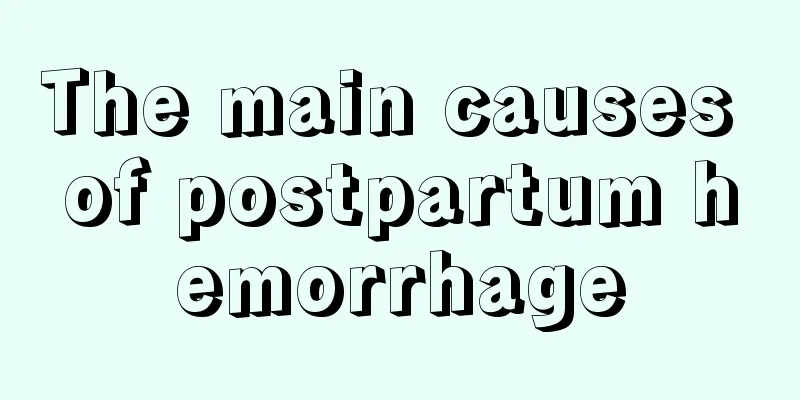There are more and more reports of drug-induced kidney damage, and this is the culprit!

|
Aunt Zhang suffers from diabetic nephropathy. Her various indicators are usually well controlled. Recently, she suddenly felt dizzy, nauseous, and vomited. After checking her blood creatinine, it was found to be 751 μmol/L. What caused her kidney function to deteriorate suddenly? By inquiring about her medical history, we learned that Aunt Zhang had pain in her left lower limb some time ago. After seeing a doctor, it was found that she had an infection and was given an intravenous drip of gentamicin. The most important adverse reaction of gentamicin is nephrotoxicity, which is undoubtedly a further blow to Aunt Zhang, whose kidney function is already very weak. In addition, gentamicin is also ototoxic and can cause vestibular nerve damage, so Aunt Zhang experienced symptoms of dizziness, nausea, and vomiting. What is gentamicin? Gentamicin is an aminoglycoside antibiotic commonly used in clinical practice. It is a highly effective broad-spectrum antibacterial drug independently developed in China. It is mainly used to treat bacterial infectious diseases, especially infections caused by Gram-negative bacteria. The mechanism of gentamicin-induced nephrotoxicity is mainly induced by oxidative stress . In addition, there are also inflammatory responses, cell apoptosis and necrosis, autophagy and other pathways. In addition to aminoglycoside antibiotics, what other common drugs are nephrotoxic? Acyclovir Acyclovir is mainly used to treat herpes simplex virus infection. The main cause of nephrotoxicity is deposition in the renal tubules, leading to obstruction of the renal tubules or collecting ducts. Acyclovir degradation products can interact with renal tubules and renal interstitial proteins, induce antibody production, form antigen-antibody complexes, trigger toxic immune reactions or hypersensitivity reactions, etc., causing renal obstruction and leading to acute renal failure. Nonsteroidal anti-inflammatory drugs Nonsteroidal anti-inflammatory drugs are commonly used for fever, pain or to prevent blood clots, and include aspirin, acetaminophen, indomethacin, naproxen, diclofenac, ibuprofen, nimesulide, celecoxib, etc. The reason why nonsteroidal anti-inflammatory drugs cause acute kidney injury is that they inhibit cyclooxygenase and prostaglandin synthesis. Reduced prostaglandin synthesis will lead to a decrease in the effect of prostaglandins in maintaining renal vasodilation, a significant decrease in renal blood flow and glomerular filtration rate, and contraction of medullary small blood vessels, causing renal interstitial fibrosis, and in severe cases, focal or complete glomerular sclerosis. Cisplatin Cisplatin is the drug of choice for the treatment of many tumors and is commonly used for solid tumors such as ovarian cancer, prostate cancer, testicular cancer, lung cancer, nasopharyngeal cancer, esophageal cancer, malignant lymphoma, head and neck squamous cell carcinoma, thyroid cancer and osteosarcoma. Cisplatin's renal injury is manifested by damage to the proximal and distal tubules and collecting duct cells, disappearance of the brush border, cytoplasmic vacuoles, and mitochondrial spheroidization, leading to hypomagnesemia, hypokalemia, hypocalcemia, and acidosis. Angiotensin-converting enzyme inhibitors (ACEI) and angiotensin II receptor blockers (ARBs) are commonly used to control blood pressure and urine protein in patients with chronic kidney disease, such as captopril, benazepril, valsartan, and irbesartan. While delaying the progression of kidney disease, they may also cause renal injury. Fortunately, their renal toxicity is reversible. Drugs that block the renin-angiotensin-aldosterone system, such as ACEI, ARB, and renin inhibitors, furosemide, thiazide diuretics, mannitol, and drugs such as cyclosporine and tacrolimus, can cause renal injury to varying degrees. ACEI and ARB are common prerenal causes of acute increases in creatinine levels. Traditional Chinese Medicine Tripterygium wilfordii, blister beetles, fish gall, Xanthium sibiricum, Akebia trifoliata, centipedes and Chinese patent medicines containing mercury are all nephrotoxic. summary In recent years, the types of drugs have become increasingly diverse, treatment techniques have emerged in an endless stream, and treatment methods have become complex and diverse. At the same time, there are more and more reports on drug-induced renal damage. Clinicians should pay attention to drug-induced renal damage, improve their understanding of nephrotoxic drugs, and use them rationally to reduce the incidence of drug-induced renal damage. |
<<: When is the best time to eat cookies and cakes to stabilize blood sugar?
>>: An article reviews the commonly used diuretics in nephrology
Recommend
Women's private health care should be alert to these problems
Only women themselves know whether their private ...
Pregnant woman with vulva redness and swelling
When women are pregnant, their body resistance is...
Pregnant woman sleeping hip pain
Pregnant women are more prone to various problems...
A large blood clot fell during menstruation
Women have menstruation once a month, which is a ...
National Nutrition Week | These good dietary habits will help you eat healthily
May 15th to 21st is National Nutrition Week. How ...
Don’t want to go to work, no appetite… Suffering from “post-holiday syndrome” again? Here are some tips to help you recover!
We always say that we should be full of energy wh...
Buying the wrong contact lenses can damage your cornea! Many people don't know these indicators that you must look at.
Nowadays, many people choose to wear contact lens...
What is the cause of vaginal bleeding during sex?
Many female friends experience vaginal bleeding a...
Standard weight for girls 155 cm tall
Contemporary women's fashion pursues a perfec...
First-morning urine and non-first-morning urine pregnancy test
Morning urine is the urine produced in the mornin...
What to do if you sweat while sleeping after giving birth
We all know that women's bodies will become p...
Is someone around you having a fever again? Is it influenza A, norovirus or COVID-19? This picture will help you tell the difference!
Spring is a season when infectious diseases are p...
Can I get pregnant after having my cervix removed?
The uterus is an extremely important part of the ...
How to treat cervical cyst
Cervical cyst is a cyst that occurs in the neck. ...









